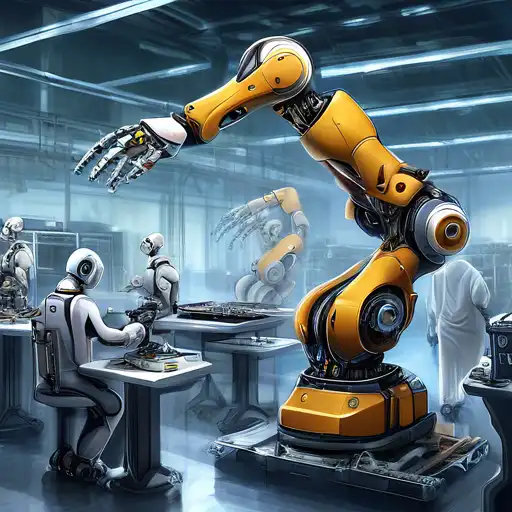The Revolutionary Impact of Robotics on Modern Manufacturing
In the ever-evolving landscape of manufacturing, robotics has emerged as a game-changer, revolutionizing how products are designed, produced, and delivered. This transformation is not just about automating repetitive tasks but also about enhancing precision, efficiency, and safety in manufacturing processes.
Enhancing Efficiency and Productivity
One of the most significant benefits of robotics in manufacturing is the dramatic increase in efficiency and productivity. Robots can operate 24/7 without fatigue, performing tasks at a consistent speed and precision that far surpass human capabilities. This relentless efficiency reduces production times and allows manufacturers to meet growing consumer demands more effectively.
Improving Quality and Precision
Robotics technology has also set new standards for quality and precision in manufacturing. With advanced sensors and programming, robots can perform intricate tasks with minimal errors, ensuring that every product meets strict quality controls. This level of precision is particularly crucial in industries such as aerospace and automotive, where even the slightest deviation can have significant consequences.
Reducing Costs and Waste
By integrating robotics into manufacturing processes, companies can significantly reduce operational costs and material waste. Robots optimize the use of raw materials and minimize errors that lead to waste, contributing to more sustainable manufacturing practices. Additionally, the long-term savings on labor costs and increased production capacity further justify the investment in robotics technology.
Enhancing Worker Safety
Robotics has also played a pivotal role in enhancing worker safety by taking over hazardous tasks that pose risks to human workers. From handling toxic materials to operating in extreme temperatures, robots can perform these tasks without putting human lives at risk, creating a safer work environment.
The Future of Manufacturing with Robotics
As robotics technology continues to advance, its impact on manufacturing is expected to grow even more profound. Innovations such as collaborative robots (cobots) and artificial intelligence (AI) are paving the way for smarter, more adaptable manufacturing processes. These developments promise to further enhance efficiency, reduce costs, and open new possibilities for customization and innovation in manufacturing.
In conclusion, robotics is transforming the manufacturing industry in unprecedented ways, offering benefits that extend beyond automation to include improved quality, efficiency, and safety. As we look to the future, the integration of robotics and AI in manufacturing processes is set to redefine the boundaries of what is possible, marking a new era of innovation and productivity.
